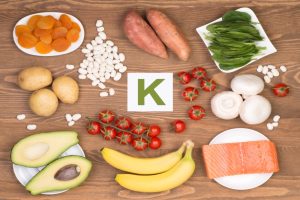
The researchers studied 90,137 postmenopausal women for 11 years on average. The researchers looked at the women’s potassium consumption along with whether they had strokes or died during the study period. Daily potassium intake on average was 2,611 mg and all the participants were stroke-free at the start of the study.
The researchers found that women who consumed the most potassium had a 12 percent reduced risk of stroke and 16 percent lower risk of ischemic stroke. These women were also 10 percent less likely to die, compared to women who ate the least amount of potassium.
They also suggest that eating high potassium foods can be beneficial for high blood pressure. They did not establish any link between potassium intake and hemorrhagic stroke.
According to the U.S. Department of Agriculture, women should eat at least 4,700 mg of potassium every day.
“Only 2.8 percent of women in our study met or exceeded this level. The World Health Organization’s daily potassium recommendation for women is lower, at 3,510 mg or more. Still, only 16.6 percent of women we studied met or exceeded that,” added Wassertheil-Smoller. “Our findings suggest that women need to eat more potassium-rich foods. You won’t find high potassium in junk food. Some foods high in potassium include white and sweet potatoes, bananas, and white beans,” she continued.
Adding potassium into one’s diet is generally safe, but this is not advised for those with high potassium levels in the blood. It’s always a good idea to check with your doctor before making dietary changes.
Unique Stroke Symptoms and Risk Factors in Women
Stroke is the third leading cause of death for women and the fifth for men. Women generally live longer than men, so having a stroke can have longer-lasting debilitating effects. For example, women who experience a stroke are more likely to live alone or in a long-term care facility and have worsened recovery outcomes.
Common stroke symptoms include sudden numbness or weakness of the face, sudden confusion or difficulty speaking, sudden trouble seeing, sudden difficulties walking or maintaining balance, and sudden severe headache.
Although women may experience these general symptoms, other symptoms are specific to women. These unique symptoms include loss of consciousness or fainting, general weakness, difficulty or shortness of breath, confusion, unresponsiveness or disorientation, sudden behavioral changes, agitation, hallucination, nausea or vomiting, pain, seizures, and hiccups.
Women also have unique risk factors that increase their risk of stroke. These include taking hormonal birth control pills, being pregnant, using hormonal replacement therapy, and suffering from migraine headaches with aura.
To prevent or lower the risk of stroke in women, it is advised that women quit smoking, maintain a healthy blood pressure and cholesterol level, keep their weight in a healthy range, prevent or manage diabetes, and get screened for atrial fibrillation.
11 Food Sources of Potassium
Avocados
Avocados are not only tasty, but they are also incredibly nutritious. Apart from being one of the top sources of potassium, they are also high in heart-healthy monounsaturated fats and very high in fiber.
Beets
Known for their deep color, beets are rich in folate and manganese. They are also one of the highest sources of potassium. Just ½ cup of boiled and diced beets contains 259g of potassium.
Bananas
Perhaps one of the best-known sources of potassium, bananas offer an easy way to get the nutrients in a self packaged container. Just one banana can offer 451 mg of potassium.
Potatoes and sweet potatoes
Potato lovers are always happy to hear that they are one of the highest sources of potassium. White potatoes, in particular, can provide 1,600mg of potassium per baked potato.
Spinach
This highly nutritious vegetable includes a hearty amount of potassium and other nutrients that are vital for metabolism, vision health, bone health, and the immune system.
Watermelon
This juicy treat is a great way to get your potassium and lower your risk of stroke. Enjoy it sliced, or juice it for a refreshing drink in the summer. It is also a great source of vitamins A and C.
White Beans
Heart-healthy beans can provide a large amount of potassium when added to a daily diet. White beans are also an excellent source of fiber and plant-based protein.
Black Beans
A staple food in South and Central American, black beans are high in potassium. Just be sure to soak beans overnight to reduce the phytates that could interfere with the absorption of vitamins and minerals.
Pomegranate
This seeded fruit is extremely healthy, with one fruit offering over 666mg of potassium. They do pack more calories than other fruits, so these should be consumed in moderation.
Swiss Chard
This leafy green is gaining popularity thanks to its nutrition qualities. One cup of cooked Swiss chard contain 961mg of potassium.
Yogurt
Everyone knows that yogurt is a great source of calcium and probiotics. But this creamy treat can also provide a substantial amount of potassium. Just one cup of yogurt has 380mg of potassium.